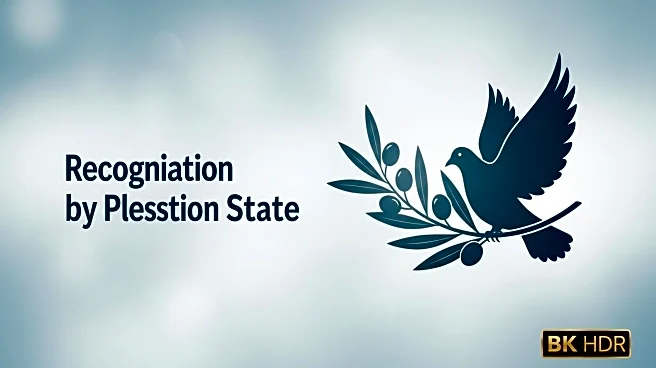What is the story about?
What's Happening?
The United Kingdom, Australia, and Canada have formally recognized the state of Palestine, a move that has been met with vocal opposition from both the United States and Israel. This recognition marks a significant shift in the diplomatic stance of these countries, which have traditionally aligned closely with U.S. foreign policy in the Middle East. The decision comes amidst ongoing tensions and complex geopolitical dynamics in the region, where the Israeli-Palestinian conflict remains a contentious issue. The recognition by these U.S. allies is seen as a symbolic gesture aimed at supporting Palestinian statehood aspirations, despite the lack of a comprehensive peace agreement between Israel and Palestine.
Why It's Important?
The recognition of Palestine by key U.S. allies could have significant implications for international diplomacy and the Middle East peace process. It may encourage other countries to follow suit, potentially altering the balance of international support in the Israeli-Palestinian conflict. This development could also strain diplomatic relations between the U.S. and its allies, as it diverges from the U.S. and Israeli stance on the issue. For Palestine, this recognition is a diplomatic victory that could bolster its efforts for broader international recognition and support. Conversely, Israel may view this as a setback, potentially complicating its diplomatic efforts and negotiations with Palestine.
What's Next?
The recognition of Palestine by these countries may prompt discussions and debates within international forums such as the United Nations, where the status of Palestine has been a longstanding issue. It remains to be seen how the U.S. and Israel will respond to this development, and whether it will lead to any changes in their diplomatic strategies. Additionally, other countries may be influenced by this decision, potentially leading to a ripple effect in international recognition of Palestine. The move could also impact future peace negotiations, as it may alter the dynamics and leverage of the involved parties.














